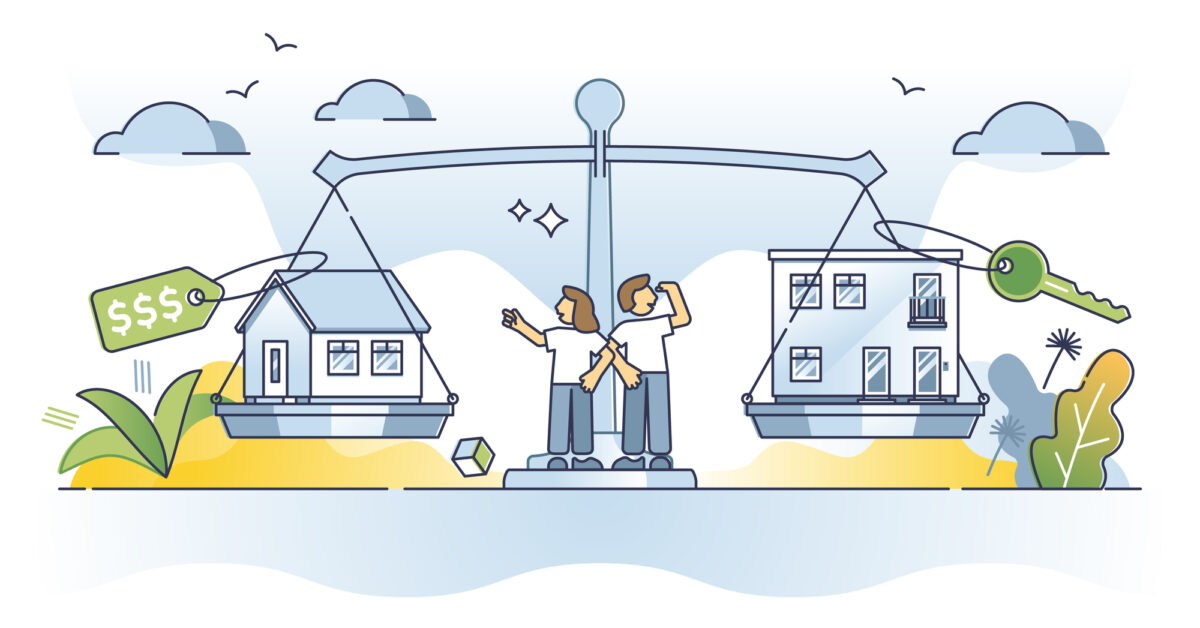Buying a home is one of the most significant decisions a person can make in their lifetime. It is a decision that can impact their financial and personal life for years to come. As such, it is essential to carefully consider the pros and cons of buying a home before making a final decision. This blog post will discuss the pros and cons of buying a home and what a new home buyer should know.
Pros of Buying a Home
- Investment: One of the main advantages of buying a home is that it is an investment. Homeownership allows you to build equity in your property, which can increase over time. As a result, owning a home can be a smart financial decision.
- Stability: Owning a home provides stability and a sense of security. You don’t have to worry about rent increases or a landlord selling the property. You can decorate and personalize your home to your liking and make it a comfortable and safe space for your family.
- Tax Benefits: Homeownership comes with several tax benefits. Homeowners can deduct mortgage interest and property taxes on their federal tax return, which can result in significant savings.
- Pride of Ownership: There is a sense of pride and accomplishment that comes with owning a home. You can take pride in your property and enjoy the feeling of ownership that comes with it.
Cons of Buying a Home
- Expense: Buying a home is a significant expense. It requires a down payment, closing costs, and ongoing expenses such as mortgage payments, property taxes, and maintenance costs. These costs can add up quickly and can be overwhelming for many homeowners.
- Lack of Flexibility: Owning a home can limit your flexibility. If you need to move for a job or personal reasons, it can be challenging to sell your home quickly, and you may end up losing money if you sell during a down market.
- Maintenance: Homeownership requires ongoing maintenance and repairs. From fixing leaky faucets to replacing a roof, homeowners are responsible for all maintenance and repairs on their property. These costs can add up over time and can be expensive.
- Market Volatility: The housing market can be volatile, and property values can fluctuate. If you purchase a home during a housing bubble, you may end up owing more on your mortgage than your home is worth, which can be a financial burden.
What a New Home Buyer Should Know
- Determine Your Budget: Before you start looking for a home, it’s essential to determine your budget. Consider all of your expenses, including mortgage payments, property taxes, and maintenance costs, to determine how much you can afford.
- Get Pre-Approved for a Mortgage: Getting pre-approved for a mortgage can give you a better idea of how much you can afford and can make the home buying process smoother.
- Work with a Realtor: A realtor can help you find the right home, negotiate the purchase price, and guide you through the home buying process.
- Get a Home Inspection: Before you buy a home, it’s essential to get a home inspection. A home inspection can identify any issues with the property that may need to be addressed before you close on the home.
- Be Prepared for Closing Costs: Closing costs can add up quickly and can include fees for the mortgage, appraisal, title search, and home inspection. It’s essential to be prepared for these costs to avoid any surprises.
Conclusion
Buying a home can be a smart financial decision and can provide stability and a sense of pride and ownership. However, it’s important to consider the cons of homeownership, including the expense, lack of flexibility, maintenance, and market volatility. New home buyers should determine their budget, get pre-approved for a mortgage, work with a realtor, get a home inspection, and
